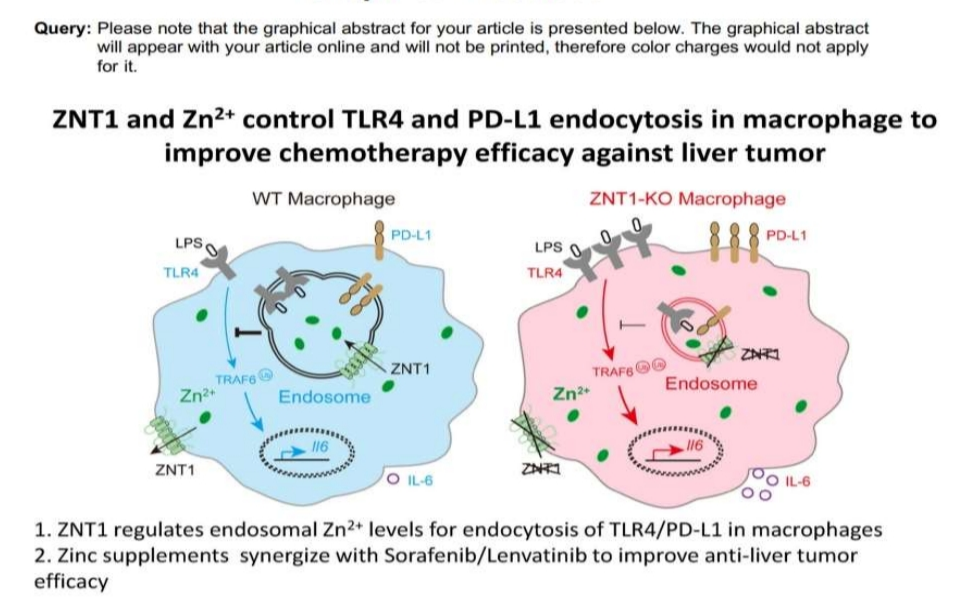
The two panels are the summarized findings titled as ”ZNT1 and Zn2+ control TLR4 and PD-L1 endocytosis in macrophage to improve chemotherapy efficacy against liver tumor”. Hepatocellular carcinoma (HCC) is closely associated with inflammation and immune modulation, and combined chemotherapy with other strategies is under extensive investigation to achieve better efficacy. HCC is accompanied by zinc (Zn) deficiency. This study aims to understand how Zn could affect macrophage function and its application for HCC therapy. Zn2+ and the Zn transporter 1 (ZNT1, solute carrier family 30 member 1) were markedly reduced in intrahepatic macrophages from patients with HCC and mouse liver tumors. Lower ZNT1 expression was associated with higher IL-6 production and shorter survival time in patients with HCC. Critically, ZNT1 regulated endosomal Zn2+ levels for endocytosis of toll-like receptor 4 and programmed cell death ligand 1, thereby decreasing macrophage-induced inflammation and immunosuppression to protect from liver tumors. Our study proposes a new concept that ZNT1 and Zn regulate endosome endocytosis to maintain surface receptors, and Zn supplements might be synergized with chemotherapy to treat inflammation-associated tumors, especially those containing programmed cell death ligand 1+ myeloid cells.